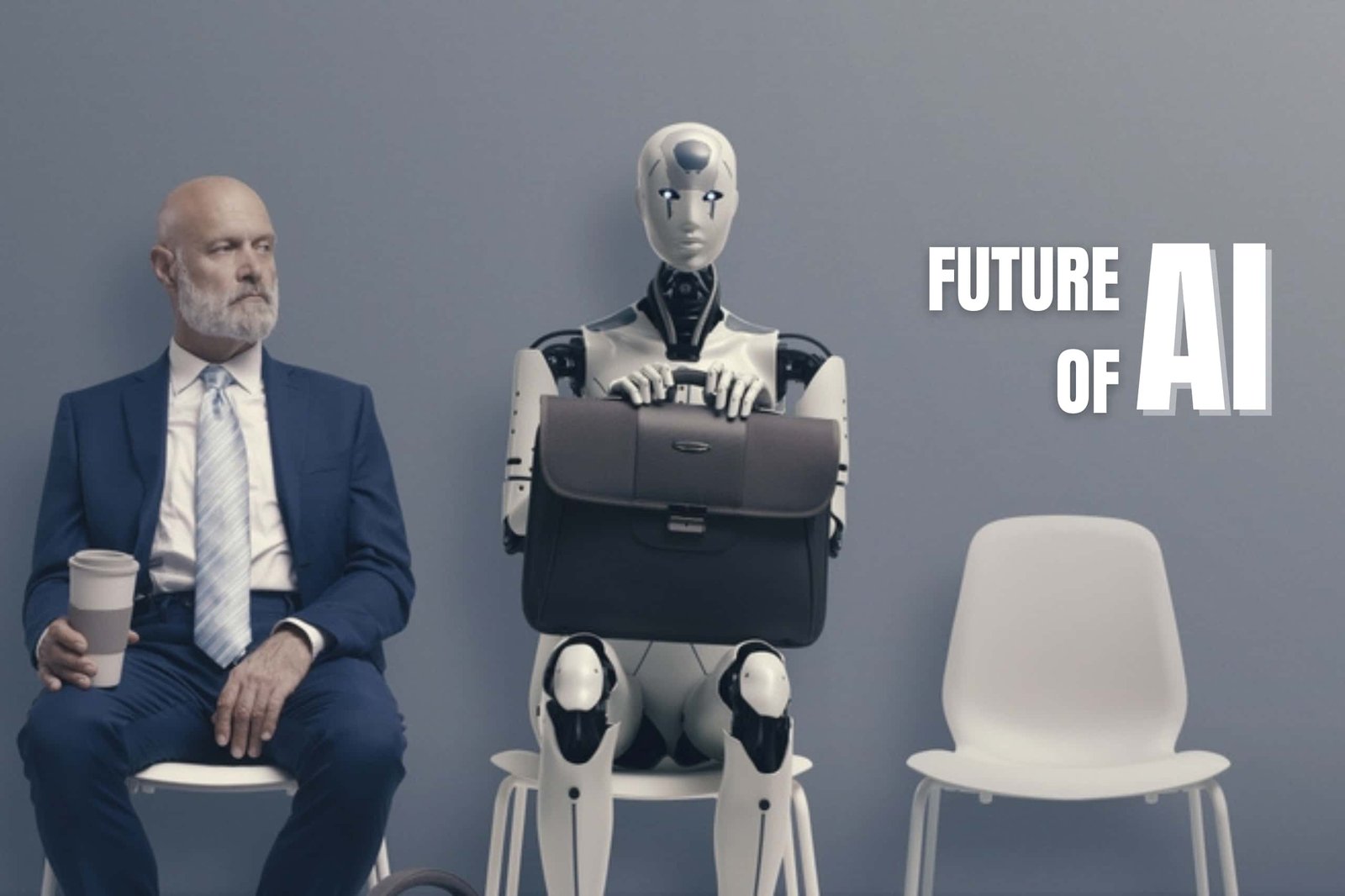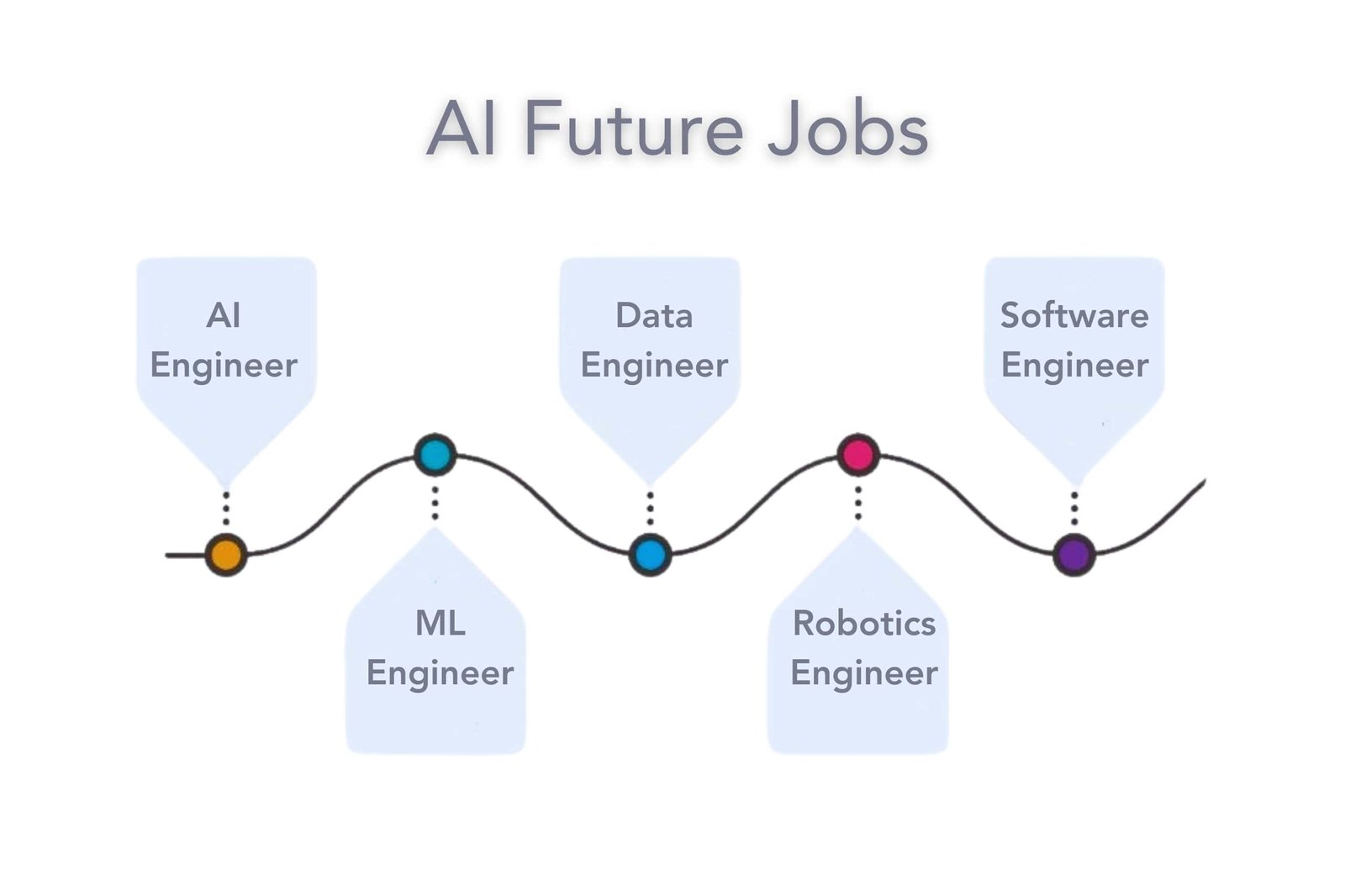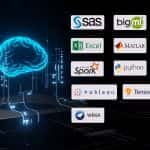Artificial Intelligence has been able to gain immense momentum today and is transforming every industry in the world. Even in the time of pandemic, AI has enabled in providing technical solutions to the people in terms of information inflow. Additionally, businesses have been able to encroach for a focused approach in their operations.
Therefore, AI has been evolving since years now and is currently at its peak of development. AI has been disrupting every industry in the world today and will supposedly make larger swings in the next 5 years. The following blog will emphasise on what the future of AI looks like in the next 5 years.
Evolution of AI
The evolution of Artificial Intelligence (AI) spans several decades and has witnessed significant advancements in theory, algorithms, and applications. Here is a chronological overview of the major stages in the evolution of AI:
- Early Foundations (1940s-1950s):
The concept of AI emerged during this period, with pioneers like Alan Turing and John McCarthy laying the groundwork. Turing introduced the idea of machine intelligence and proposed the famous Turing Test as a measure of AI. Significantly, McCarthy coined the term “Artificial Intelligence” and organized the Dartmouth Conference in 1956, which is considered the birth of AI as a field. - Knowledge-Based Systems and Expert Systems (1960s-1970s):
During this period, AI researchers focused on developing rule-based systems and expert systems. These systems relied on a knowledge base of rules and facts to solve specific problems. Moreover, notable achievements included the development of the General Problem Solver (GPS) and the introduction of the MYCIN system for medical diagnosis. - Symbolic AI and Knowledge Representation (1980s-1990s):
Symbolic AI gained prominence during this era, emphasizing the use of logic, symbols, and rules to represent knowledge and perform reasoning. Expert systems were further refined, and new programming languages like Prolog emerged. However, symbolic AI faced limitations in handling uncertainty and dealing with large-scale data. - Machine Learning and Neural Networks (1990s-2000s):
Machine Learning (ML) became a focal point, enabling systems to learn from data and improve performance without explicit programming. Techniques such as decision trees, support vector machines, and neural networks gained popularity. Consequently, inspired by the brain’s structure, neural networks experienced a resurgence and contributed to advancements in image and speech recognition. - Big Data and Deep Learning (2010s-2020s):
The availability of massive amounts of data and increased computational power led to the rise of Big Data analytics. Deep Learning, a subfield of ML, gained attention with the development of deep neural networks. Moreover, Deep Learning models, particularly convolutional neural networks (CNNs) and recurrent neural networks (RNNs), achieved remarkable breakthroughs in image classification, natural language processing, and other domains. - Reinforcement Learning and Robotics (2010s-2020s):
Reinforcement Learning (RL) gained traction, focusing on training AI agents to make sequential decisions based on rewards and punishments. RL algorithms, such as Deep Q-Networks (DQNs) and AlphaGo, demonstrated significant accomplishments in game playing and control tasks. Robotics also witnessed advancements, with AI-powered robots becoming more capable in navigation, manipulation, and interaction with the physical world. - Explainable AI and Ethical Considerations (2010s-present):
As AI systems became more complex and influential, concerns about transparency, fairness, and accountability arose. Researchers began addressing the need for Explainable AI (XAI) to make AI systems more understandable and interpretable. Ethical considerations, such as bias mitigation, privacy protection, and responsible AI deployment, gained prominence. - Integration of AI with Other Technologies (ongoing):
AI is increasingly integrated with other emerging technologies, such as Internet of Things (IoT), blockchain, and edge computing. This convergence enables AI applications in diverse fields, including smart homes, autonomous vehicles, precision agriculture, and personalized healthcare.
Artificial Intelligence and the Future of Humans
1. AI and ML will transform the scientific method
In the next five years, AI and machine learning (ML) will profoundly impact the scientific method. These technologies will revolutionize how researchers collect, analyze, and interpret data. Apparently, AI-powered algorithms will help scientists uncover hidden patterns, identify correlations, and generate hypotheses from vast amounts of complex data. ML models will enable scientists to predict outcomes, simulate experiments, and accelerate the discovery of new drugs, materials, and technologies. Essentially, the future for AI will enhance the reproducibility and reliability of scientific experiments. This will produce more robust findings and accelerate scientific progress across various disciplines.
2. AI will become a pillar of foreign policy
As AI continues to advance, it will play an increasingly significant role in shaping foreign policy. Moreover, Nations will harness AI capabilities for security, intelligence gathering, and geopolitical analysis. AI-powered tools will aid in detecting cyber threats, identifying patterns in global conflicts, and predicting emerging geopolitical risks. Furthermore, AI will be utilized for diplomacy, negotiation simulations, and analyzing vast amounts of international data. Effectively, integrating AI into foreign policy will enhance decision-making processes, facilitate conflict resolution, and optimize diplomatic strategies in a complex and interconnected world.
3. AI will enable next-gen consumer experiences
Over the next five years, the future of AI in business will transform consumer experiences across industries. AI-powered virtual assistants will become more sophisticated, providing personalized recommendations, anticipating user needs, and offering immersive interactions. Retailers will leverage AI to enhance customer service, streamline supply chains, and deliver personalized marketing campaigns. Significantly, the future for AI in the entertainment industry, will enable realistic virtual reality experiences, personalized content recommendations, and advanced content creation. AI-driven chatbots will continue to improve customer support, delivering faster and more accurate responses. Thus, AI will reshape how consumers interact with products, services, and brands, leading to more tailored and engaging experiences.
4. Addressing the climate crisis will require AI
The urgency of addressing the climate crisis will drive the integration of AI in environmental research, policy, and sustainability initiatives. AI will help optimize energy consumption, improve renewable energy forecasting, and enhance energy grid management. Therefore, Machine learning algorithms will enable more accurate climate modeling, aiding in the prediction of extreme weather events and assessing their impact. AI-powered systems will optimize resource allocation, water management, and waste reduction. Additionally, AI will facilitate the development of climate-friendly technologies, such as carbon capture and storage systems, smart grids, and sustainable agriculture practices. The combination of AI and environmental science will be crucial in mitigating the effects of climate change and transitioning to a more sustainable future.
5. AI will enable truly personalized medicine
The convergence of AI and healthcare will lead to significant advancements in personalized medicine. AI algorithms will analyze vast amounts of patient data, including genomics, medical records, and lifestyle factors, to generate personalized treatment plans. Effectively, Machine learning models will aid in early disease detection, risk prediction, and tailored interventions. AI-powered medical imaging will enhance diagnostics, enabling more accurate and efficient detection of diseases like cancer. Considerably, one of the future of AI examples may include development can be considered in terms of the Virtual healthcare assistants. These will provide personalized healthcare recommendations, monitor patient vitals, and improve remote patient care. AI will also drive the development of precision medicine, where treatments are customized based on an individual’s genetic makeup and specific health conditions. Ultimately, AI will revolutionize healthcare by enabling proactive, patient-centred care and improving health outcomes on an individual level.
Artificial Intelligence Future Jobs
With the advent of Artificial Intelligence, numerous job opportunities are approaching for you to shape your career in the field. Accordingly, following are the Artificial Intelligence Jobs that you should consider for the future:
-
AI Engineer:
The job role requires you to focus on the development of tools, systems and processes that can enable application of AI to real-world problems. AI Engineers can help businesses cut costs, increase productivity and profits and provide recommendations. The average salary of an AI Engineer stands at $120,017 annually.
-
Machine Learning Engineer:
Engineers that are experts in machine learning are those who investigate, create, and develop the artificial intelligence (AI) that underlies this technology. They promote and enhance the state of the art in AI. These professionals work closely with data scientists to create models for the creation of AI, providing as a connection between various data science teams. They do tests, run tests, run statistical analysis, and build machine learning systems. The average salary of a ML Engineer per annum is $125,087.
-
Data Engineer:
Data Engineers ae responsible for building systems that collect, manage and convert raw data into usable information for Data Scientists, business analysts and others. They help in making data accessible for organisations to evaluate and optimise their business operations. The average salary for a Data Engineer stands at $115,592 per annum. Also prepare for Data Engineering Interview Questions and Answers.
-
Robotics Engineer:
These professional develop robotic application across different industries including automotive, manufacturing, defence and medicine. The robotics engineer designs new products or helps in assembling prototypes of the products for testing. The average salary for a Robotics Engineer stands at $101,062.
-
Software Engineer:
The role of a software engineer or developer focuses on creating software for computer and applications. These professionals make use of programming languages, platforms and architecture for developing anything from computer games to network control systems. Additionally, software engineers also help in improving, testing and maintaining software built by other engineers. The average salary for a software engineer stands at $107,169 per annum.
Conclusion
In summary, the next five years will witness AI’s transformative impact on various aspects of society, including scientific research, foreign policy, consumer experiences, climate change mitigation, and personalized medicine. These advancements will shape our world and drive innovation, efficiency, and progress in multiple domains.












